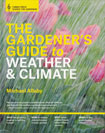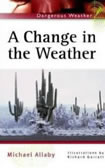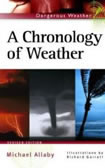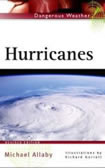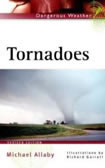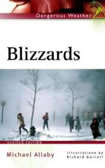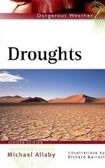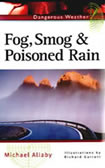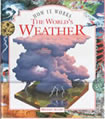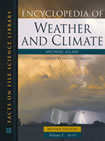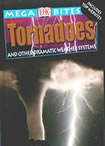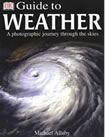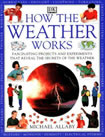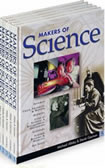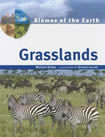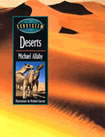Q & A
Where do I live?
People send me emails from all over the world. You can’t always tell what part of the world emails come from so I guess it’s not easy to tell where my replies come from either.
I live in Tighnabruaich, which is a village on the Cowal Peninsula in the West Highlands of Scotland, with my wife Ailsa and two cats. The oldest part of our house was built in 1858, and it’s halfway up a steep hill overlooking the Kyles of Bute - a narrow stretch of sea separating the mainland of Cowal from the northern end of the Isle of Bute. In the distance, when the weather’s clear, we can see the mountains of the Isle of Arran. The village website has some information and great pictures. Visit it and you’ll see some of our Highland scenery. Tighnabruaich is a tad remote, it has to be said. Our nearest town is about 25 miles away, much of the journey along single-track roads through the hills and one glen, past three lochs. It can be hairy in winter.
We’ve lived here for about fifteen years. Before that we lived in Cornwall, at the other end of Britain. We were there for 28 years.
How can you become a writer?
It’s not easy - and it’s not well paid! As you know, I write non-fiction. I know nothing about writing and selling fiction.
If you dream of earning a living writing non-fiction the first thing you’ll need is a subject area. This should be fairly broad. If you’re too specialized it’s likely you’ll be addressing a rather small readership, and that means the market for your books will be small. If the market is small, publishers are unlikely to be very enthusiastic. Let’s face it, it will be difficult for them to recoup their production costs, never mind make a profit. Always remember you and the publisher are both doing this to earn a living, so to succeed you have to appeal to as many people as possible.
Having chosen a subject area, you need to master it. The reader must believe that you know more about the subject than she/he does. Else why buy the book?
Now start planning your first book. Think of a topic. Break it down into chapters. Summarize the contents of each chapter. From this compile a detailed table of contents that also serves as a synopsis of the book. How long will the book be (in number of words)? How soon could you start work on the book and how long would it take you to write it?
What qualifies you to write such a book? Sell yourself.
Think about illustrations. Will the book need them? Will they be photographs or artwork? How many of each? Where will you find them? If you list the photos you would like, the publisher will put you in touch with a picture researcher. If you want artwork you will have to provide rough drafts for an artist to work from. Will the illustrations be in colour? Will you need maps, graphs, or tables? How many of each? Can you supply them?
Ask yourself who will want to buy your book. List the types of readers you hope to attract, e.g. students (what level?), hobbyists, etc. Are there organizations such as professional bodies or societies, whose members might be supportive (and could be sent advertising circulars)?
Find out what other similar books there are currently on the market. These are your competition. Examine them and list (honestly!) their strengths and weaknesses.
Once you’ve got all this information together into a single document - a proposal - some 10–20 pages long, you can start trying to sell it. This is the hard part. Look through bookstores to find out the kinds of books different publishers produce. It’s no use sending an idea for a book on Persian literature to a publisher who specializes in books on pet care. Then draw up a list of possible publishers to approach. Their addresses and senior staff are listed in standard reference books you’ll find in any library or bookstore.
You should begin with a letter, enclosing nothing. Simply outline the general theme of the book, its length, its possible market, and ask whether the publisher would like to see a formal proposal. Send the letter to one publisher at a time. Then wait and hope.
You might also try sending your letter to literary agents. If one bites, you’ll have an expert to sell the idea for you.
If someone asks for it, send your proposal. If the publisher (or agent) likes the proposal they’ll probably ask for a specimen chapter, which you must write.
Note that up to this point you have written not a single word of your great opus. Nor should you, until your idea has been accepted and the work commissioned. That is because when it is accepted the publisher’s editor may wish to suggest changes to the synopsis and you may be expected to follow a house style in matters of spelling, use of capitals, etc. It’s much easier to modify the contents and accept the editor’s instructions before you’ve written anything than to try to do so later.
For more advice you can contact The Society of Authors. They publish booklets on every aspect of authorship.
Good luck!
What’s the life of a writer like?
Forget: starving in a garret (the rent would be far too high); long lunches in swank restaurants paid for by the publisher (these used to happen, and I’ve been to quite a few, but those days are gone, alas, and it no longer happens); long, reflective walks in the warm sunshine amid charming rural scenery, followed by a relaxed and fairly liquid meal, with the idyll interrupted now and then by a gentle hour or two spent writing.
Down here in the real world it’s like going to work, except that you don’t leave the house. I get up in the morning, and after breakfast my wife and I walk into the village to collect our mail and buy a newspaper. Then I do some chores around the house. After than I move into my study, sit down at the computer, check my email, and then start work. I break for lunch and usually finish work around six in the afternoon. It’s a very humdrum life with a strict routine. The routine is very necessary. Like all writers, I’m just waiting and hoping to be distracted; the routine keeps me working. It’s not glamorous and you face constant deadlines.
How much do you earn?
It depends. Technically, an author licences a publisher to turn a manuscript into a finished book and to market it. The copyright remains with the author. The publisher estimates how many copies the book will sell from the first printing and calculates the recommended retail price. The author is paid a royalty, which is an agreed percentage (commonly 10%) of the sale price. Of the estimated total royalty owed on a sell-out of the first print run, the publisher pays the author an advance, usually in two or three instalments (on signature of the contract, delivery of the manuscript, and publication). The advance is a percentage of the first-run royalty. So the size of the advance depends on the size of the market - the number of copies the publisher hopes to sell.
Alternatively, and nowadays increasingly commonly, you may be paid a flat fee (what the Americans call “work for hire”). The publisher then owns the copyright. The flat fee will be larger than an advance, but if the book sells well, you will not benefit financially.
How did I get started?
Like many authors, by accident. I was employed in the editorial department of a voluntary organization and my boss, who was an author, persuaded his publisher to commission a book from me. I wrote that one, and a while later another publisher linked to a magazine I wrote for invited me to write a second book. Others followed.
However, I had to be highly flexible. The publishing industry has crazes. A topic becomes fashionable, everyone wants a piece of the action, and before long the bookstores are packed with books on that topic, all competing with each other. Then sales peak and start to fall because the market is saturated, and no one will publish any new book on that topic, no matter how good it may be. It’s over, at least for a few years until public interest revives, if it does. So I had to learn to write about something else, and something different after that. Again and again. And at times there wasn’t much money coming in.
Now it’s all changing again, but this time it’s the technology, not the subject matter. Ebooks are expanding and I expect I’ll be writing them before long. I’ll no longer receive the box of author’s copies when each book is published, so there’ll be no more volumes to find places for on the shelves. It will all be invisible. But I expect I’ll get used to it. Print on demand is the other new technology. It means that no title need ever again go out of print, which is good news for authors. And the old-fashioned (i.e. paper and ink) books we do write are now being scanned and put online, so they’re available for downloading. That represents a new and additional outlet, but one that will likely grow at the expense of the hard-copy book. More to get used to.


